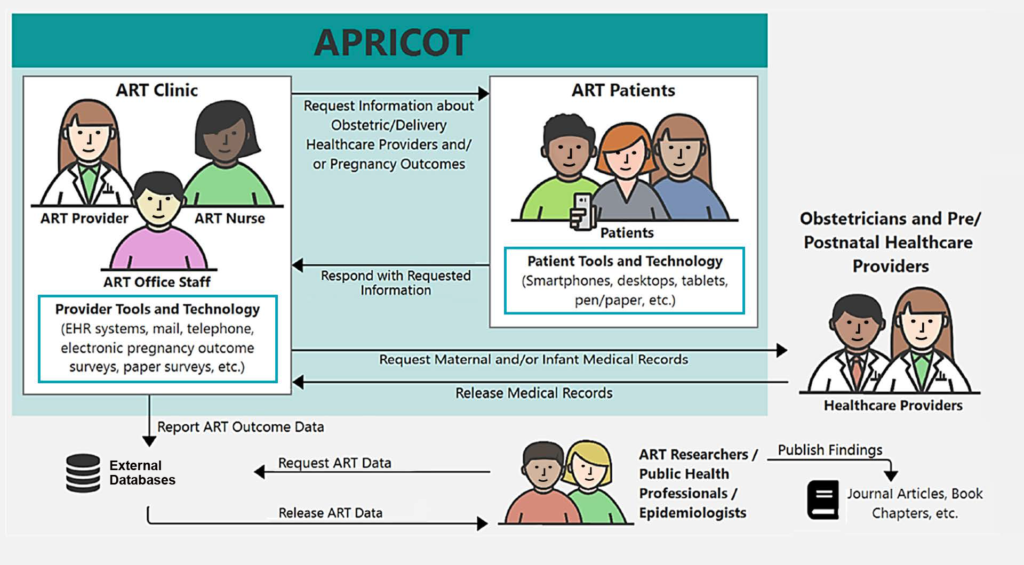Charles River Analytics was awarded funding from the Centers for Disease Control and Prevention (CDC) to develop a health management application that helps fertility clinics receive pregnancy outcome information from patients who have undergone assisted reproductive technology (ART) treatments.
Clinics that provide ART treatments are federally mandated to report outcomes to the CDC to support ongoing research. These clinics, however, only monitor ART pregnancies through the first ten weeks, after which patients receive ongoing prenatal care from their obstetricians.
Because of this change in care, fertility clinics face challenges collecting pregnancy outcome information from patients and their healthcare providers. Additionally, their current outreach methods, including telephone calls, mail, and email, are burdensome and inefficient, preventing clinics from collecting accurate data.
To help clinics collect pregnancy outcome data from ART patients and their healthcare providers, Charles River and our partners at Massachusetts General Hospital are designing ART Provider and Patient Resources to Improve Communication about Outcomes and Treatment (APRICOT). APRICOT is a health information technology tool that will facilitate the electronic transmission of pregnancy outcomes from ART patients to ART clinics.
“Assisted reproductive technology can provide valuable family planning assistance, such as to those experiencing infertility, but more information is needed to analyze and understand treatment outcomes,“ said Nicolette McGeorge, Scientist at Charles River Analytics and Principal Investigator of the APRICOT effort. “APRICOT helps patients communicate pregnancy outcomes to fertility clinics; these data will help researchers advance and improve this technology, ultimately supporting many in their goal to expand their family.”
APRICOT’s design will incorporate feedback from professionals who specialize in ART and infertility treatments, such as fertility clinic staff, researchers, and public health professionals, as well as current and past patients who have undergone ART treatments. This will ensure the tool is useful, accessible and user friendly, ultimately improving the quality of ART data reported to the ART clinics.

APRICOT extends Charles River’s experience in using human factors engineering to analyze healthcare domains and design user-centered technology. For example, to monitor the cognitive impairment of cancer survivors following chemotherapy (CAMPFIRE); to collect patient reported outcomes following radiotherapy (PRORAD); and a mobile health app to assisting cancer survivors to follow their survivorship care plan (POSTHOC).
Contact us to learn more about APRICOT and our other health and medical products and capabilities.
This material is based upon work supported by the Centers for Disease Control and Prevention (CDC) under a Small Business Innovation Research (SBIR) Grant No. 1 R43DP006690-01-00. Any opinions, findings and conclusions or recommendations expressed in this material are those of the authors and do not necessarily reflect the views of the CDC.

